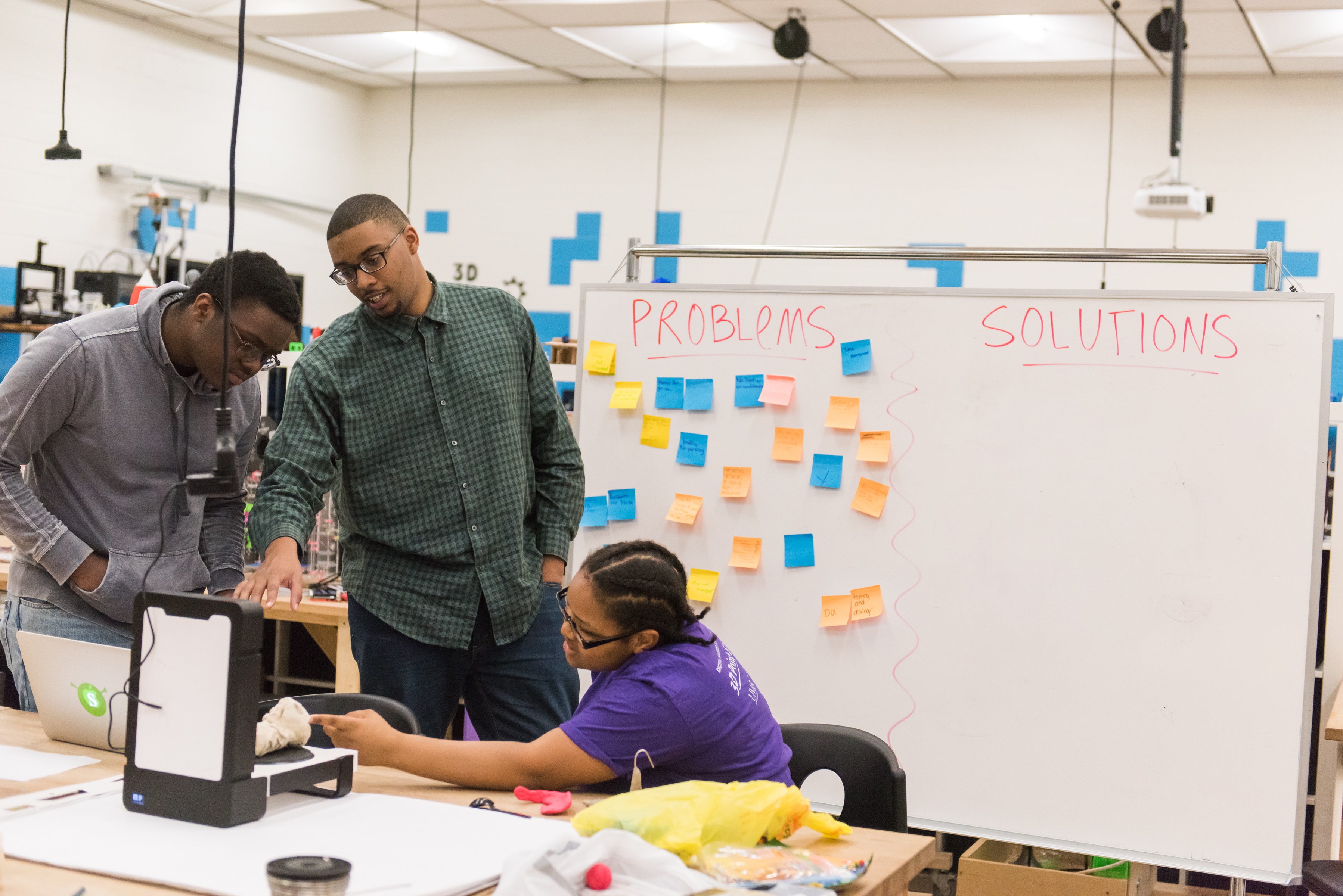In the heart of Baltimore’s Federal
Hill, the Digital Harbor Foundation (DHF) is bustling with students of
all ages. The building features makerspaces that encourage innovation
and creativity, and help students build their technical skills through
activities like 3D printing. Here, Amy Hurst,
associate professor of information systems, works alongside middle
school students to help explore and prepare for future careers at the
intersection of science, technology, entrepreneurship, and the arts.
“The print shop serves as a ‘living laboratory’ where we test the limits of modern 3D printing and scanning technology and how to design technical after-school jobs,” explains Hurst.
In addition to Hurst, William Easley ‘13, information systems management, M.S. ‘15, human-centered computing, and Ph.D. ‘22, human-centered computing plays a major role in managing the shop’s activities. “William is at the print shop throughout the week, working with the youth employees and helping design workflow in the shop,” she says.
 William Easley, center, works with youth in the makerspace at the Digital Harbor Foundation.
William Easley, center, works with youth in the makerspace at the Digital Harbor Foundation.
As part of the grant, Hurst and Easley are researching how the experience of being employed at the DHF shop impacts the educational and career trajectories of the Baltimore youth who participate. Will this experience, and this broader connection to the maker movement, help them remain engaged in STEM study — majoring in related fields in college — or open up new job prospects for them? So far, Hurst, Easley, and the DHF have been encouraged by the results.
“Since opening in January 2017, nine youth have had paid positions in the print shop and we have completed jobs from local companies, schools, universities and nonprofits,” says Hurst.
While the project is ongoing, Hurst and Easley have already begun sharing lessons they’ve learned so far about running the print shop at the Digital Harbor Foundation, and the ways in which the youth are impacted through this work. They’ve spoken at the annual conference of the Society for Engineering Education and NSF recently highlighted the Baltimore project in a widely-shared Science Nation video and article. In the video, Hurst explains the print shop’s immediate goals — to help participating Baltimore youth develop the skills necessary to pursue STEM degrees and careers — and her broader focus on increasing diversity in STEM fields.
“I think an important part of growing up is having some experience working, and starting to think about who you are and who you want to be after you’ve finished school,” says Hurst in the NSF video.
Banner image: Amy Hurst, center, mentors youth who work at the
Digital Harbor Foundation’s makerspace. Photos by Marlayna Demond ’11
for UMBC.